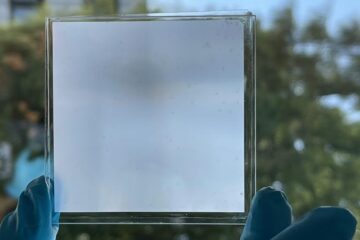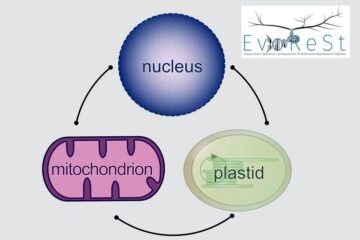“Segmented flow biofilm reactor” – Enzymatic capillary microreactor

Biofilms are a versatile class of biocatalysts, as they are able to self-immobilize, to generate high cell density and cell mass, to exhibit resistance against many otherwise toxic chemical substances. Moreover, biofilms have the potential for long term activity ranging from days to months. Conventional reactors utilizing biofilms for the production of value added products are known and can be classified as fixed bed reactors and expanded bed reactors. Both suffer from practical problems and high costs.
Although well established for chemical reactions, segment-ed flow capillary microreactors are so far not used for enzymatic catalysis. Here, a segmented flow capillary microreactor was used as a first example to perform the enzyme-catalyzed conversion of 1 heptaldehyde to 1-heptanol in a two liquid-liquid phase system. The model enzyme used was the thermophilic alcohol dehydrogenase (TADH), because of its broad substrate spectrum and enantiospecificity. All key parameters governing reaction performance have been correlated in a novel operational window for an easy assessment of the various system constraints. Such sys-tems are characterized by high productivities and easy phase separation facilitating downstream processing. In particular, the present invention concerns a segmented flow biofilm reactor wherein a biofilm can be grown and maintained for performing a biotrans¬formation reaction or fermentation in the presence of a segmented flow. The present invention further concerns a method for transform-ing a substrate to a product in the presence of a seg-mented flow. This work underscores the importance of segmented flow systems as a promising tool to perform multiphasic enzy-matic catalysis.
Weitere Informationen: PDF
PROvendis GmbH
Tel.: +49 (0)208/94105 10
Ansprechpartner
Dipl.-Ing. Alfred Schillert
Media Contact
Alle Nachrichten aus der Kategorie: Technologieangebote
Neueste Beiträge

Neuartiges Material für nachhaltiges Bauen
Innovativer Werkstoff für eine energieeffiziente Architektur: Forschende des Karlsruher Instituts für Technologie (KIT) stellen in der aktuellen Ausgabe der Fachzeitschrift Nature Communications ein polymerbasiertes Material mit besonderen Eigenschaften vor. Das…

Neues Antibiotikum gegen Erreger der Flussblindheit und Lymphatischen Filariose
Prof. Achim Hoerauf, Direktor des Instituts für Medizinische Mikrobiologie, Immunologie und Parasitologie des Universitätsklinikums Bonn (UKB), und seinem Team ist es in Kollaboration mit der Abteilung Pharmazeutische Technologie und Biopharmazie…

Evolutionäre Genomik: Folgen biodiverser Fortpflanzungssysteme
Die Deutsche Forschungsgemeinschaft (DFG) fördert die Einrichtung eines neuen Graduiertenkollegs (GRK) in der Biologie an der Universität Göttingen. Das GRK mit dem Titel „Evolutionary Genomics: Consequences of Biodiverse Reproductive Systems…

















